‘Hiding in a cupboard fearing for her life’: Extraordinary women saving lives of DV victims
It’s a service that started with little more than a burning desire for justice, the Queensland women and pioneers behind the Women’s Legal Service Queensland share their most powerful memories to honour its 40th anniversary.
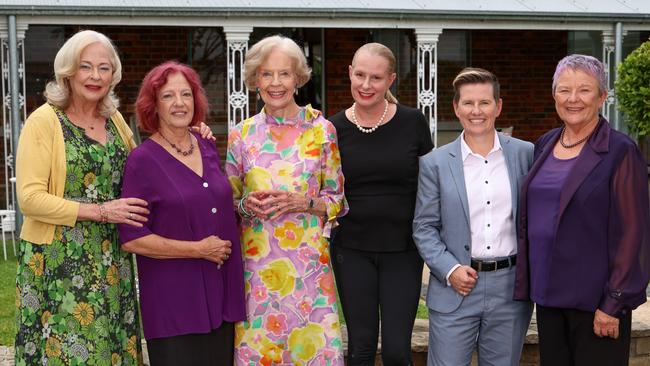
QWeekend
Don't miss out on the headlines from QWeekend. Followed categories will be added to My News.
Forty years ago on a night in October, a group of women piled into a room in Brisbane.
It was an old building, the airconditioning had broken but they crammed in, filling every seat and floor space and spilt onto the veranda of Women’s House on Browning St in West End.
The women, including lawyers and social workers, were drawn together by a letter from Queensland lawyer, Sheryl Cornack, calling them to an urgent meeting.
Her message was as clear as it was powerful.
Queensland women were at risk, with limited to no access to basic legal representation and their lives and wellbeing needed protecting.
Cornack called for the immediate establishment of a service dedicated to women, run by women.
With an overwhelming sense of solidarity and purpose, that night, in 1984, the Women’s Legal Service Queensland was created.
Last year, the organisation celebrated its
40-year anniversary and to celebrate what has become a community and legal icon, some of the trailblazing women behind it reflect on its monumental impact.
Among them are Queensland women, Cornack, co-founder and former president Zoe Rathus, Dame Quentin Bryce, former patron Margaret McMurdo, former president Dr Rachael Field and current CEO Nadia Bromley.
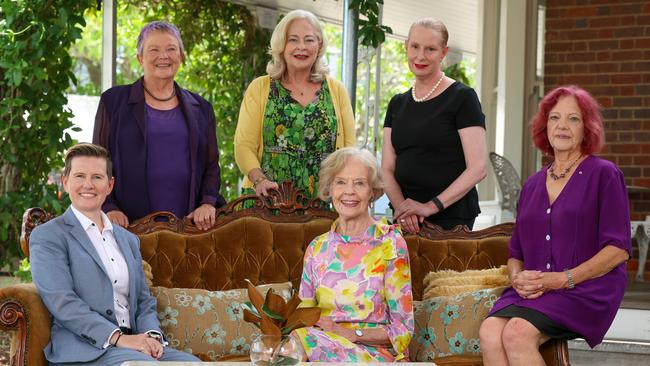
They’ve come together outside Hanworth House in East Brisbane for our photo shoot, and as they gather side-by-side, it’s a powerful image of strength and sisterhood. Their efforts, along with those of many others across the decades, have changed history, saved and changed lives, educated and empowered women and advocated for policy and law reforms.
Early on, the WLSQ established itself as an influential voice in public campaigns, including the case of Beryl Birch in the mid-80s, a woman who was jailed for killing her violent partner.
Rathus, now an associate professor at the Griffith University Law School, was a crucial advocate for Birch and alongside the WLSQ, highlighted the inadequacies of the self-defence laws in Queensland. It helped pioneer a feminist approach to the law.
Just as significantly, the service has helped push for changes to legislation, including the establishment of the Domestic and Family Violence Taskforce, chaired by Dame Quentin Bryce, which produced the Not Now, Not Ever report in 2014, and in 2021, the Women’s Safety and Justice Taskforce, chaired by former president of the Queensland Court of Appeal, Margaret McMurdo.
Theirs is an extraordinary story of a fearless pursuit of justice. It was the ’80s, an era of widespread protests and rallies, and a young Cornack had just graduated with a law degree and been admitted as a solicitor. She was doing extra study in arts and taking women’s studies courses and it was here her eyes opened.
“I had done a research assignment about women’s access to justice and as part of that I was looking at the profession and women’s access to even a lawyer,” says Cornack,
who moved to Townsville and later became
a magistrate.
“At that stage there were no women judges or magistrates and less than 10 per cent of the profession were women.”
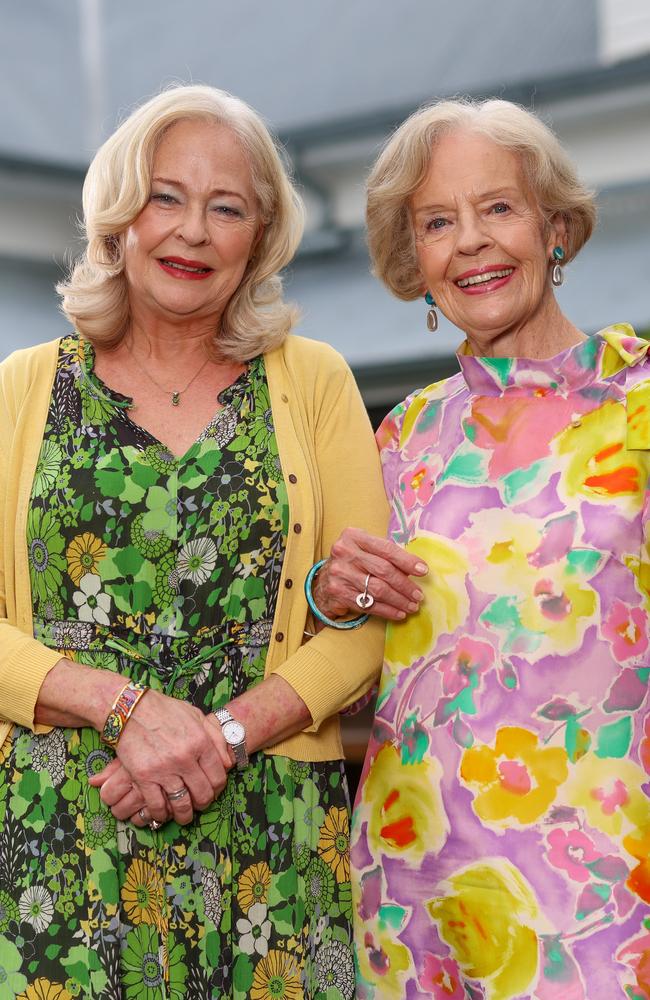
The spark was lit and Cornack, a former WLSQ president, can still feel the fire she felt delivering the first meeting.
“I was pretty excited,” she says.
“I was telling them I thought women were having a hard time getting legal advice and often women didn’t have money to access legal advice and if they had it, it would make a big difference to their lives, the trajectory of their lives and to their children’s lives.”
Cornack could never have known what would transpire.
“I didn’t think about the changes that were possible collectively when women stood together to change the law,” she says.
It started with simple fundraisers where they passed around a hat, raffled off a pot plant and raised $150. It was enough to buy them their first phone and set up a call service.
This would become, and remains, one of their most vital services. On Wednesday nights, a social worker and a lawyer opened the phone lines for a few hours, available for women to call or drop-in for free legal advice.
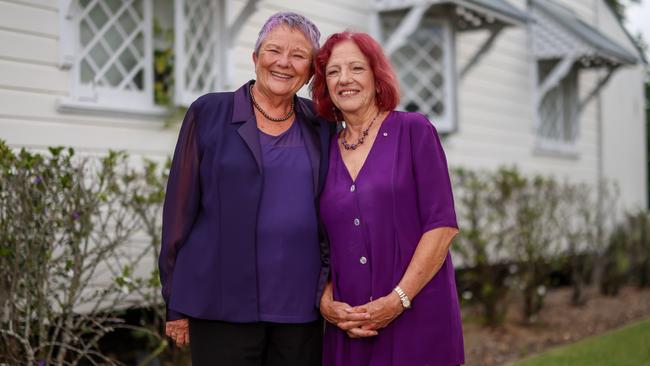
It would later expand from a room to a house, when in 1996 they bought a property on Ipswich Rd in Annerley.
Rathus, who was the service’s co-ordinator for 15 years, says the majority of their work related to family law, domestic violence and helping women to leave abusive partners.
“We heard so many stories of the difficulties women had in leaving, the difficulties in setting themselves up successfully, the lack of services,” she says.
“Women were wanting advice on how they could safely separate and at that time we had no domestic violence legislation in Queensland, it was known that family court restraining orders were not helpful in a practical sense.”
Back then, the idea of providing legal advice over the phone was met with resistance but they knew it was the only way for women to safely access help. Rathus says their priority was, and is, to always answer those calls because it could save a life. “Women were dealing with all kinds of violence,” she says.
“The point of separation is often the most dangerous time for a woman and we were realising by starting a women’s legal service and the area we are going to advise in most is going to be separation and so we are actually advising women at the most dangerous time in their lives.
“The stories I was hearing both at my work and at WLSQ of the violence women had experienced, of the physical abuse that they had experienced and of what children with them had witnessed, it was outside of my own personal knowledge and I had to start to understand these stories,” she says.
Every woman had a story. Stories of pain and suffering, of torture and unimaginable brutality and of a life nobody should have to endure.
But they were also stories of resilience, determination, inspiration and of women who, with their help, had hope for a better life.
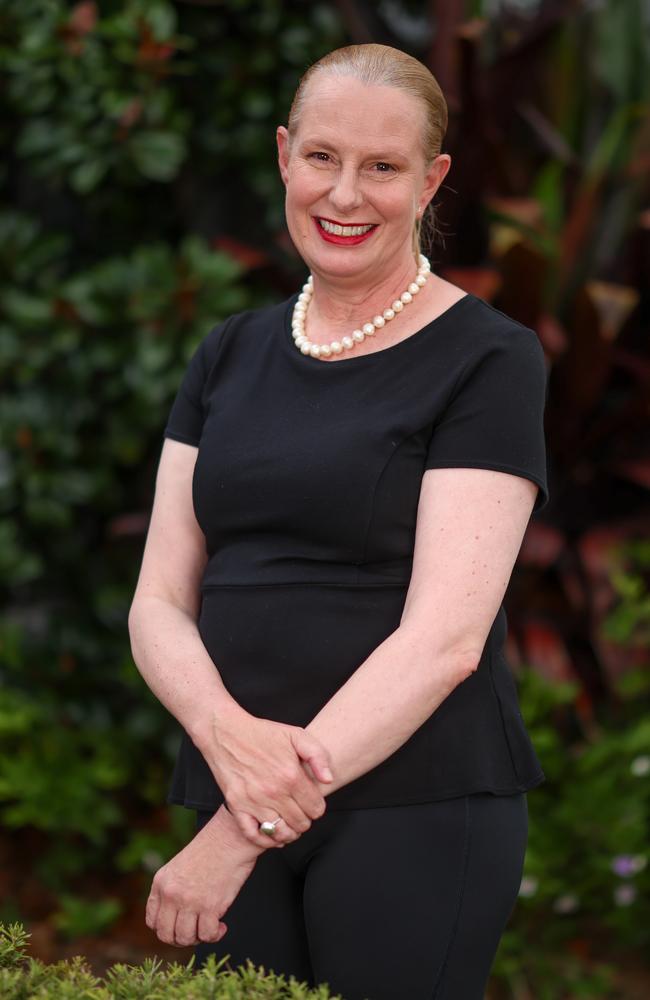
Former volunteer and member of the management committee, Dr Rachael Field, says one story has stayed with her.
“One of our amazing lawyers took a call on the Help Line from a client hiding in a cupboard in her house fearing for her life,” recalls Field, who joined the service in 1993. “Her husband was a perpetrator of violence. Luckily this woman got through on the Help Line. She had been told by a friend that if she left the house she would be giving up the children as well.
“She got accurate advice from the Help Line and advice about how to get out safely. If her call didn’t get through that day, she might have been a statistic in the death-by-DV figures.”
Yet despite the crucial impact, criminal law barrister and later judge, Margaret McMurdo, recalls the fight to keep the service open.
In 2011, the service faced significant funding cuts. McMurdo says it prompted a public rally.
“I was then president of the Court of Appeal and spoke publicly to The Sunday Mail about the importance of the WLSQ’s work and the very real danger these funding cuts were putting on the lives of women and children at risk,” she says. “The public rallied and helped … my Zonta Club, the Zonta Club of Brisbane, provided modest funding to keep the WLSQ phone lines operational.” Bryce too remembers fundraisers, hosting events at her house in St Lucia.
“I look back and smile to myself when I think of the great excitement at one of these gatherings when we raised $1000, we thought that was a huge achievement, now I look at the remarkable, generous creative and brilliant fundraising WLSQ has now.”
Among them is the annual Dancing CEOs, which raises hundreds of thousands of dollars for WLSQ. CEO Bromley is grateful for these significant strides and to the women who shaped it. “Our service provides free legal and social support, but it is so much more than that. It is a space where a woman can tell her story, have it heard and respected, without judgment,” she says. “It’s a space where women are empowered to make their own choices in the legal system and their voices are amplified through our service to improve laws and access to justice for everyone.
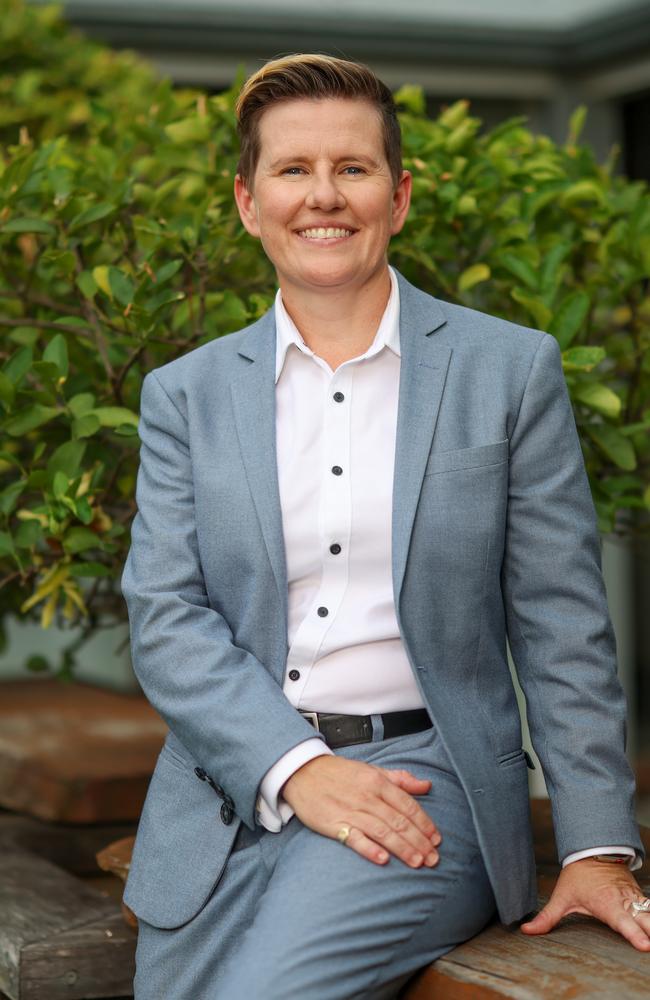
“Although every woman’s story is unique; her experiences, her family, her culture, her struggles, the stories are incredibly diverse, they share a common thread of strength,” she says.
“The courage and determination of our clients is universal. While the work we do is challenging, the women we support are a source of constant inspiration.”
They’ve broken barriers and forged a way ahead but the women acknowledge there is much more to do and Bryce hopes the 40-year milestone will fuel momentum.
But for now, as they honour the work that has led them here, it’s a legacy they’re proud of.
“WLSQ is a living example of how, over time, persistence, hard work, advocacy and compassion can bring about positive change to laws and systems and make life-altering, indeed lifesaving, differences to the circumstances of vulnerable people,” says McMurdo.
It’s a legacy the women in that room four decades ago could never have imagined would go on to become a revolutionary movement.
“I still remember those first couple of years after I left, I’d be driving down Ipswich Rd and there the house would be glowing,” says Rathus.
“I knew the lawyers were there, the support workers were there, the clients were there and the evening sessions were on, as they are still.
“I would have this sense of being part of the beginning of something that continues … and it still continues, that was such a sense of achievement, that it has its own life.” ■





